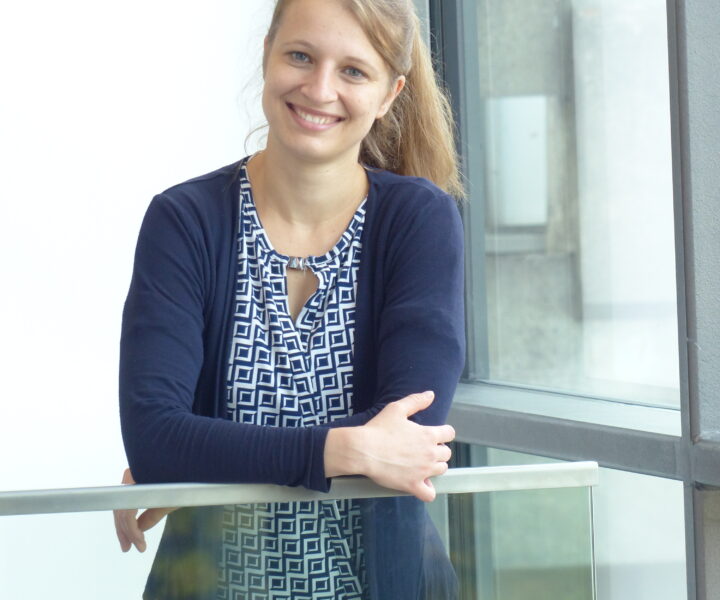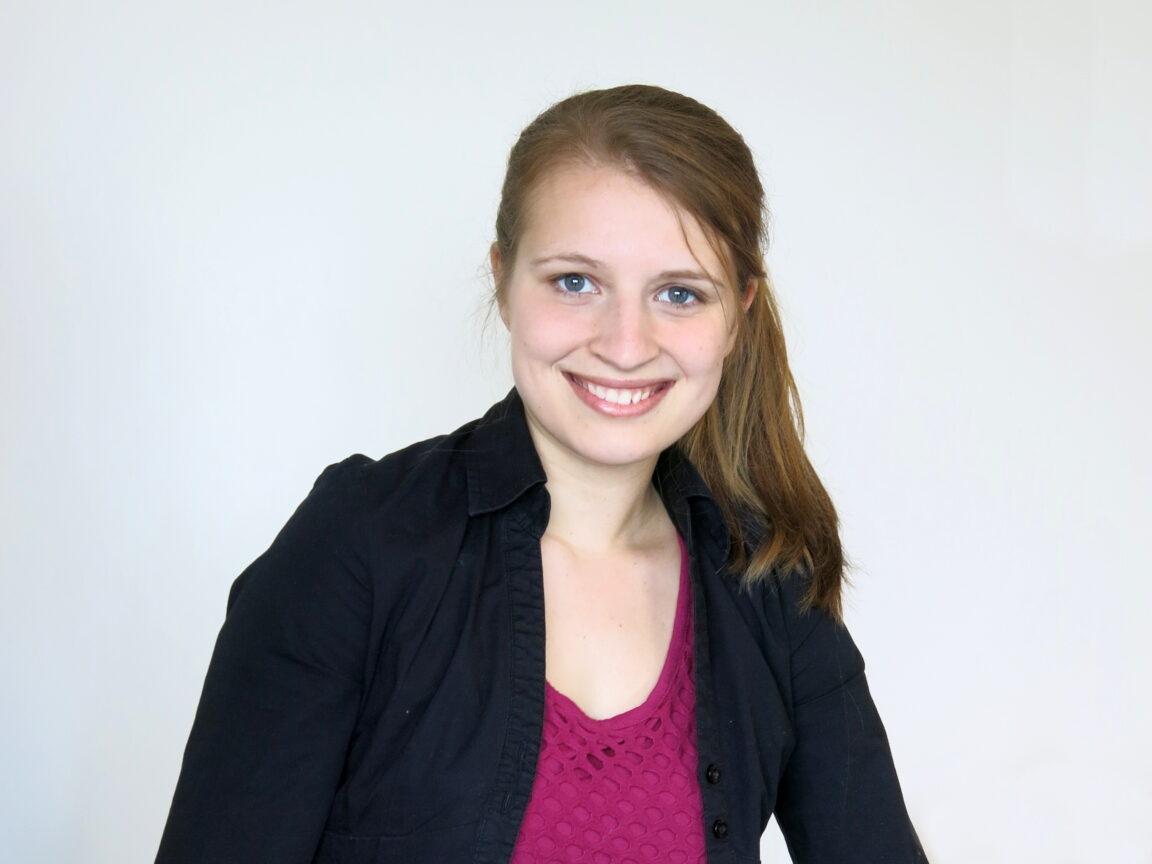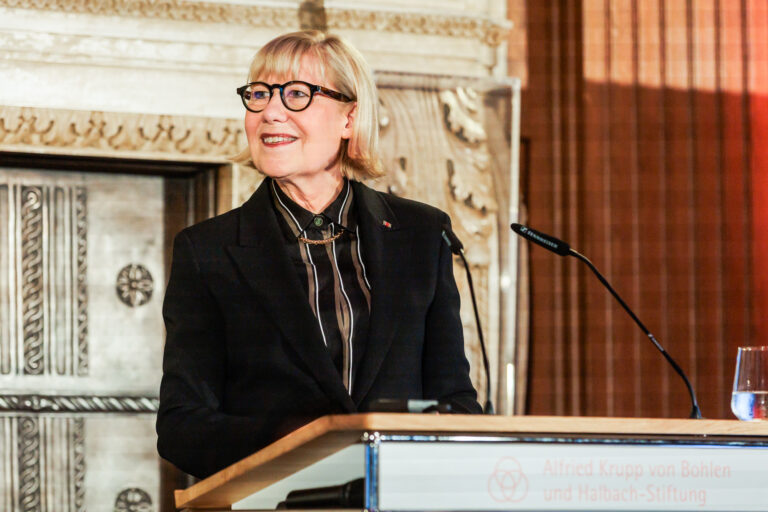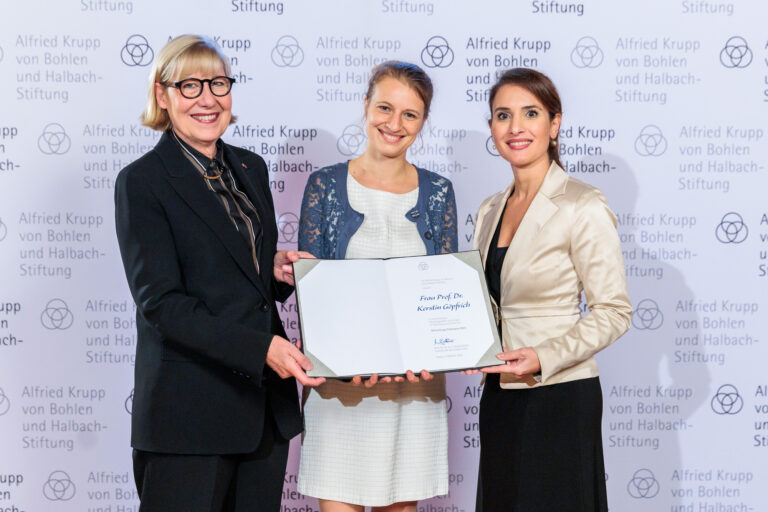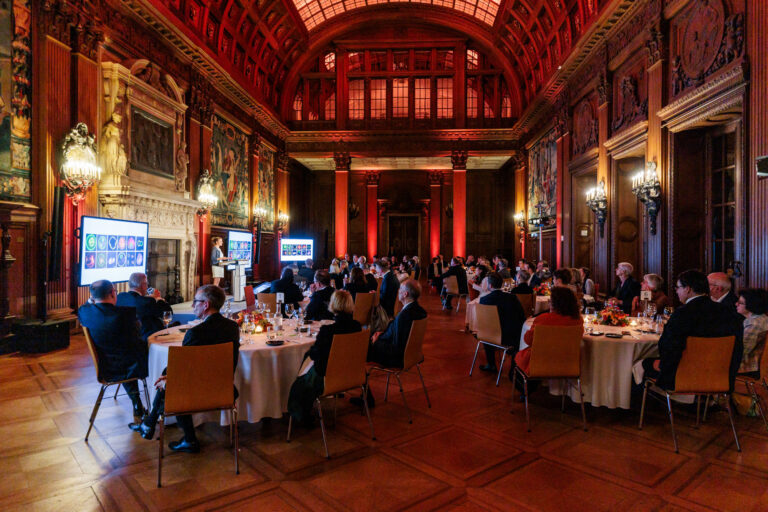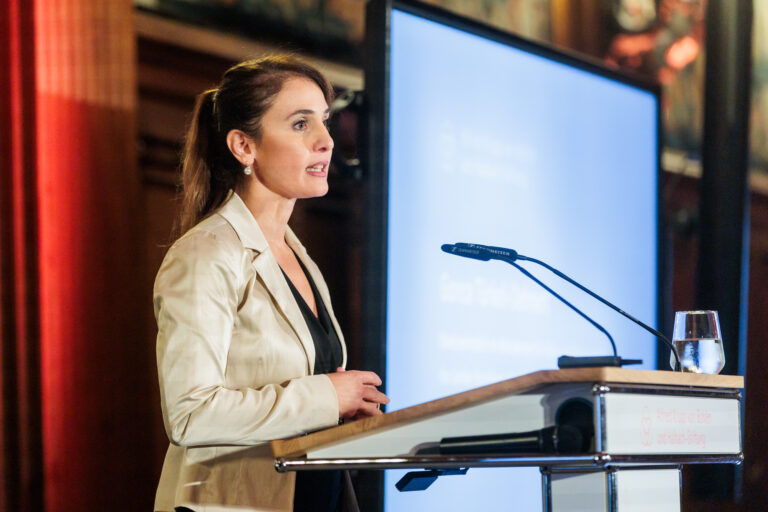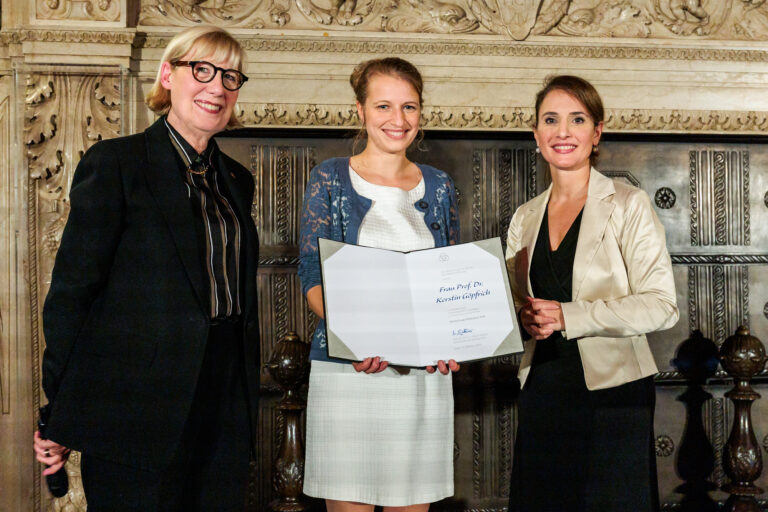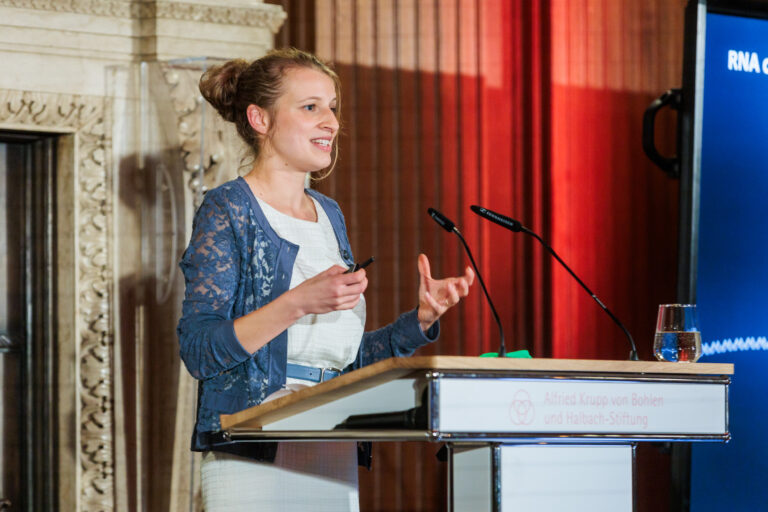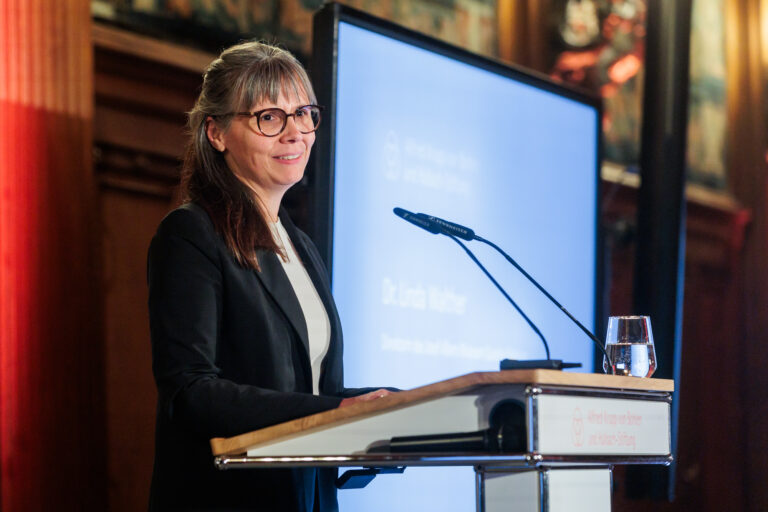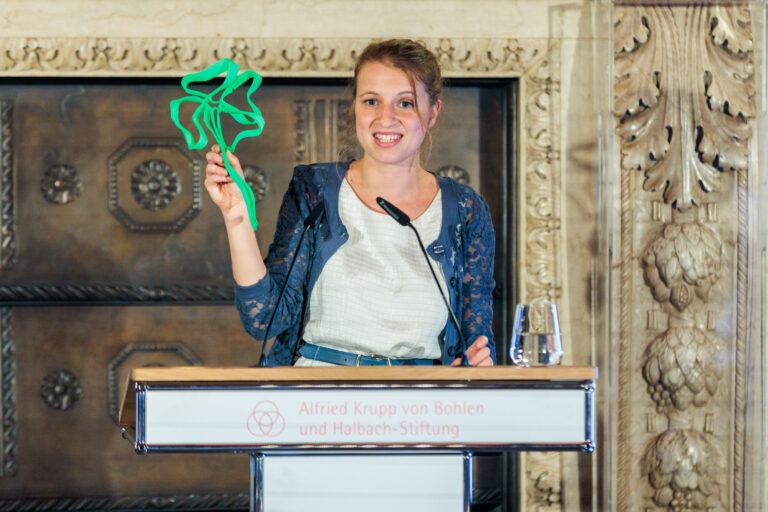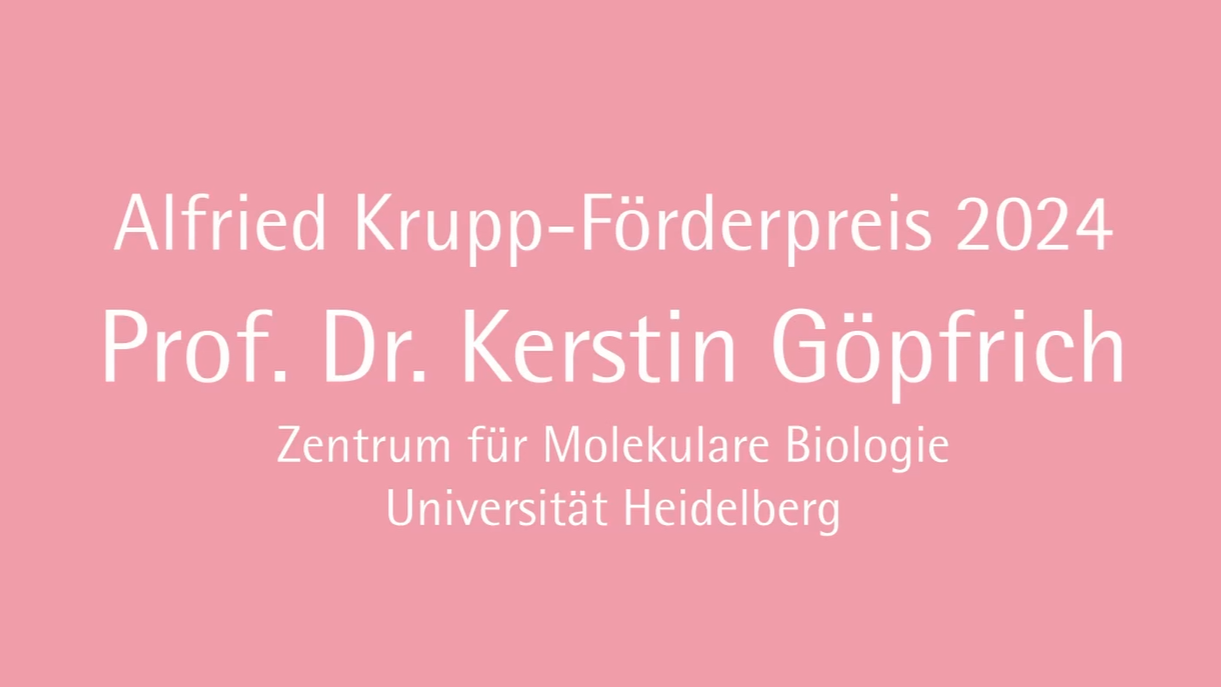About Kerstin Göpfrich’s research
Physical models enable the understanding of the laws of nature. However, we have been lacking such models for living systems so far. This is exactly where Kerstin Göpfrich comes in: With her research, she strives to create an artificial model cell that opens up new ways of describing and utilising living processes. Kerstin Göpfrich is working in the field of so-called ‘bottom-up’ synthetic biology, which deals with the artificial production of living cells under lab conditions. The aim here is to generate functional components in vitro that enable living processes. In this, proteins produced elsewhere have to be channelled into artificial cell walls. Kerstin Göpfrich has taken a new approach here: Instead of using already finished proteins, she is designing her own kit from scratch using molecular hardware, choosing DNA and RNA for the construction. Following a design process on the computer, the chain-like DNA is transformed into two- and three-dimensional structures that are then also able to exert functional properties. The name given to this folding art on a nanometre scale is DNA origami. Kerstin Göpfrich has succeeded in reconstructing functional DNA-based cytoskeletons that can transport substances within the artificial cells. The formation of daughter cells has also already been successful. The next step is for the artificial cells to produce their own molecular hardware, which has not been possible to date. This further development could not only help to better understand the development of early life forms, but could also be used in medicine. Materials could be created in the future that have the ability to regenerate themselves, adapt to changing conditions and continue to develop independently.
Kerstin Göpfrich’s innovative approach has already developed into several patented applications, including an image-based method for cell sorting. With her vision of creating an artificial model cell, she combines pioneering science driven by curiosity with the development of usable innovations.
“This year’s Alfried Krupp Prize honours Kerstin Göpfrich and her pioneering scientific findings in the field of synthetic biology. Not only does her research open up new perspectives for science and industry, but it can also revolutionise our understanding of life. The Krupp Foundation is delighted to accompany Kerstin Göpfrich on her journey and to support her in the development of these revolutionary approaches.”
Prof. Dr. Dr. h. c. Ursula Gather, Chairwoman of the Foundation’s Board of Trustees

